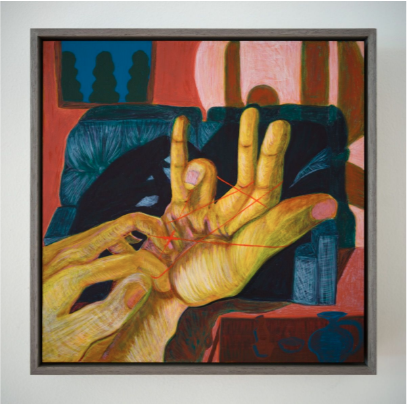Our third artist, Guanyu Xu, grew up in a military-housing complex in Beijing before moving to the U.S. in 2014. His photographs are autobiographical, if not diaristic, helping him to reclaim his lived experience as a queer member of the Chinese diaspora. In the series “Temporarily Censored Home” (2018–19), he covered the rooms of his childhood home from floor to ceiling with magazine editorials, family photos, and both self-made and found portraits of himself and other gay men. The rooms are unoccupied, but contain evidence of the colliding conservative and progressive lifestyles that once animated them (with the latter covering up the former). As much as his photographs depict a private disquietude, they also speak more broadly to the censoring of Asian identity in America and queer identity in Asia.
Unlike Ngô, Zhu, and Xu, who are all established artists that have exhibited worldwide, Damien Ding and Tinwai Wong are MFA students at the start of their careers. Ding is primarily a painter, whose alienated subjects oscillate between vulnerability and introspection. For example, in Last minute late night thoughts (2019), an ambiguous figure is shown alone, looking out into the distance in a heightened, almost uncomfortable moment of contemplation. A halo or shadow emanates from the crown of their head, leaving the impression that this person has found solemnity in their solitude. Meanwhile, in Wong’s MAMA (2019–20), we hear a series of audio recordings featuring the artist repeating the word “mama.” Over the course of the work, she’s heard sobbing in a state of surrender, hardly able to catch her breath. Playing each of the recordings, the word “mama” starts to sound foreign, as if it has no allegiance to a specific language. Ding’s and Wong’s contributions stand out in the exhibition for their emotive and amorphous propositions, manifesting the psychological disorientation we experience in social isolation.
